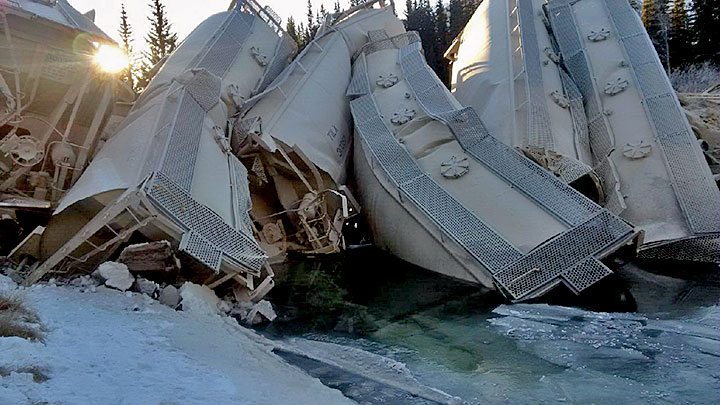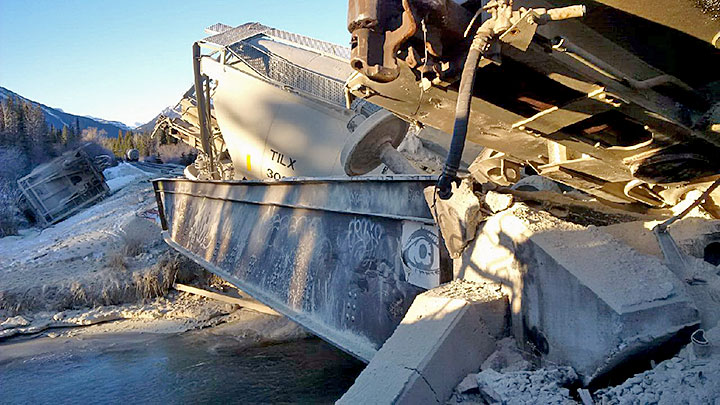Main-track train derailment
Canadian Pacific Railway
Freight train 205-25
Mile 82.1, Laggan Subdivision
Banff, Alberta
The occurrence
On , at 0052 Mountain Standard Time, westbound Canadian Pacific train 205-25 derailed 15 cars at Mile 82.1 on the Laggan Subdivision, near Banff, Alberta. The derailment destroyed the bridge over Forty Mile Creek and cars loaded with fly ash, soybeans and lentils were breached, spilling product into the waterway. No injuries were reported. However, a crew member sought medical attention for fly ash inhalation.
Media materials
News releases
Broken heel block assembly led to December 2014 Canadian Pacific Railway derailment near Banff, Alberta
Read the news release
Deployment notice
TSB deploys a team to the site of a derailment involving a CP freight train near Banff, Alberta
The Transportation Safety Board of Canada (TSB) is deploying a team of investigators to the site of a derailment involving a Canadian Pacific freight train near Banff, Alberta. The TSB will gather information and assess the occurrence.
Download high-resolution photos from the TSB Flickr page.
Class of investigation
This is a class 3 investigation. These investigations analyze a small number of safety issues, and may result in recommendations. Class 3 investigations are generally completed within 450 days. For more information, see the Policy on Occurrence Classification.
TSB investigation process
There are 3 phases to a TSB investigation
- Field phase: a team of investigators examines the occurrence site and wreckage, interviews witnesses and collects pertinent information.
- Examination and analysis phase: the TSB reviews pertinent records, tests components of the wreckage in the lab, determines the sequence of events and identifies safety deficiencies. When safety deficiencies are suspected or confirmed, the TSB advises the appropriate authority without waiting until publication of the final report.
- Report phase: a confidential draft report is approved by the Board and sent to persons and corporations who are directly concerned by the report. They then have the opportunity to dispute or correct information they believe to be incorrect. The Board considers all representations before approving the final report, which is subsequently released to the public.
For more information, see our Investigation process page.
The TSB is an independent agency that investigates air, marine, pipeline, and rail transportation occurrences. Its sole aim is the advancement of transportation safety. It is not the function of the Board to assign fault or determine civil or criminal liability.

